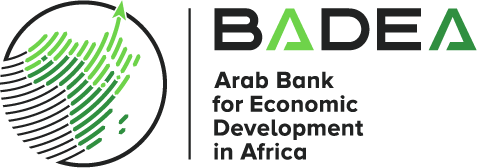Empowering SMEs, Women & Youth in Africa’s Single Market: Innovate. Collaborate. Trade.
Background
Achieving the vision of the AfCFTA requires the inclusive participation of all demographic economic groups: Women, Youth, and Small & Medium Enterprises (SMEs). Women constitute nearly 50% of Africa’s labour force and run about 30% of registered businesses, yet they face disproportionate challenges in accessing finance and markets. Similarly, Africa’s youth (a population under 35) representing over 60% of the population, are driving innovation in tech and entrepreneurship but often lack the necessary support structures. SMEs, which account for 80% of employment and 50% of GDP in many African countries, struggle with scalability due to limited access to regional markets.
Many African entrepreneurs remain unaware of the opportunities within AfCFTA. Bridging this gap requires targeted awareness campaigns to empower, digital marketplaces to innovate, and capacity-building programs that enable them to trade within the continent. An inclusive AfCFTA must prioritise policies that enable these groups to thrive through easier trade regulations, digital tools, and targeted funding.
These groups collectively represent a significant portion of Africa’s population and economic activity but face systemic barriers limited access to finance, markets, skills, and technology.
Register for your interest out of the lineup of Breakfast Meetings and Workshops, happening at the Africa Prosperity Dialogues (APD) 2026 over the 3 day period from 4-6 February 2026
Focusing on Women, Youth and SMEs, APD 2026 will seek to achieve the following:
Highlight the opportunities presented by the AfCFTA for Women, Youth, and SMEs to engage in cross-border trade and economic activities.
Discuss alternative strategies for Africa’s policy shift within the context of the changing global trade dynamics.
Promote the removal of trade barriers, harmonise customs procedures, and expand the Pan-African Payment and Settlement System (PAPSS) to boost intra-African trade.
Promote industrialisation and local value addition shifting from raw material exports to manufacturing to retain more wealth on the continent.
Push for the enhancing of access to finance for women and youth-led SMEs & advocate for simplified trade procedures and reduce non-tariff barriers.
Promote physical trade infrastructure to make inclusivity among Women, Youth and SMEs much easier and better.
Accelerate the ratification of the AfCFTA Protocol on Women & Youth in Trade and seek a reduction in procurement quotas for women-led businesses.
Value Preposition:
Why Women, Youth and SMEs?

Women contribute nearly 50% of Africa’s GDP (UNECA, 2021), yet face systemic barriers in finance, market access, and trade networks. Closing gender gaps in trade could boost intra-African commerce by 15% annually (AfCFTA Secretariat).

Youth represent 60% of Africa’s population (World Bank, 2023), yet unemployment remains alarmingly high. Empowering young entrepreneurs could create 50 million jobs by 2030 (AfDB, 2021).

SMEs form the backbone of Africa’s economy, accounting for 80% of employment and 50% of GDP (Afreximbank, 2022). Yet, only 20% engage in cross-border trade due to regulatory and financial hurdles (ITC, 2021).
Central to the theme for APD 2026 is the call to Innovate. Collaborate. Trade. APD 2026 will focus on Women, Youth and SMEs and advocate for a single African market through the following:
Addressing ways to unlock the $15 billion in untapped potential leveraging the AfCFTA’s Protocol on Women in Trade.
Harness Africa’s youth dividend by creating opportunities that bridge the skills gap, accelerate digital trade, and connect young entrepreneurs to regional markets.
Empower SMEs for cross-border success by pushing for simplified trade procedures, expanded financing, and cost reduction.




















